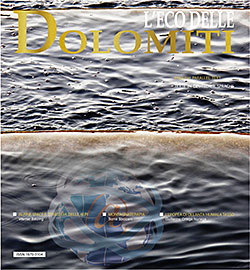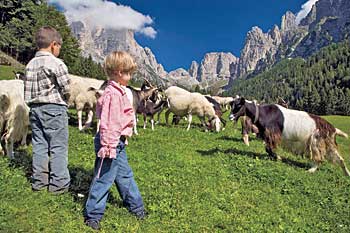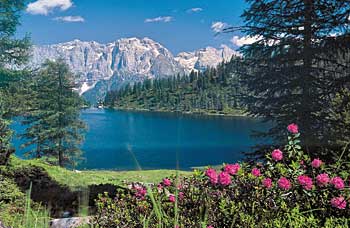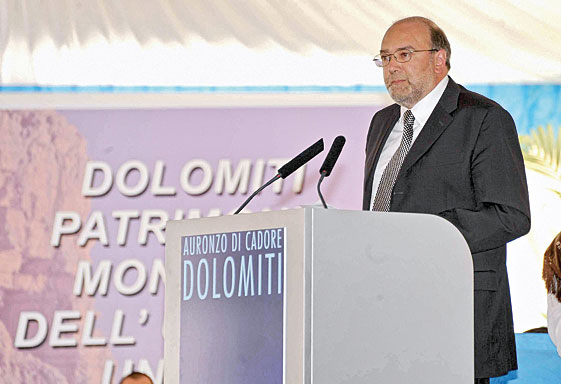 NUMBER 11
NUMBER 11

THE DOLOMITES: "A commitment that requires more responsibility.
 The Dolomites are more than a splendid rocky theatre, they are the common home of men and women who still want to live in the mountains and, for this reason, we must be concerned to promote these communities and all the cultural diversity of those who inhabit them, by beginning with linguistic diversity and opposition to any creeping standardisation. The Dolomites are more than a splendid rocky theatre, they are the common home of men and women who still want to live in the mountains and, for this reason, we must be concerned to promote these communities and all the cultural diversity of those who inhabit them, by beginning with linguistic diversity and opposition to any creeping standardisation. Our responsibility is to recovery the signs of the collective memory of our area in opposition to any logic of depersonalisation. At the same time, we must try to support the occupations of the Dolomites, both the traditional ones and the new ones, to avoid two risks: that of becoming a big Disneyland without a soul or becoming a deserted forest with no people. I would like to dedicate this ceremony to the many persons, both old and young, who stubbornly continue their traditional occupations and, most of all, to all those who work in the very difficult trade of animal husbandry, without which the Dolomites would be a Venice without gondolas.  I would like today's commitment to be that of asking that particular attention be paid to the mountains' animal breeders because the weight given to the mountains in the institutions of the Italian and European governments is much less than they deserve. Therefore, for us administrators, the recognition of the Dolomites as a UNESCO World Heritage site carries with it a great responsibility; this is why we must think responsibly about all the people that live in our communities, think about safeguarding and protecting this patrimony from the point of view of modernisation. The challenge of this recognition must be met through the actions of the people and not small-talk, through a culture of preservation that is in tune with the people and the communities and not inspired by an authoritarian and somewhat pedantic restrictionism." I would like today's commitment to be that of asking that particular attention be paid to the mountains' animal breeders because the weight given to the mountains in the institutions of the Italian and European governments is much less than they deserve. Therefore, for us administrators, the recognition of the Dolomites as a UNESCO World Heritage site carries with it a great responsibility; this is why we must think responsibly about all the people that live in our communities, think about safeguarding and protecting this patrimony from the point of view of modernisation. The challenge of this recognition must be met through the actions of the people and not small-talk, through a culture of preservation that is in tune with the people and the communities and not inspired by an authoritarian and somewhat pedantic restrictionism."
|
||
© 2006-2011 EcodelleDolomiti
